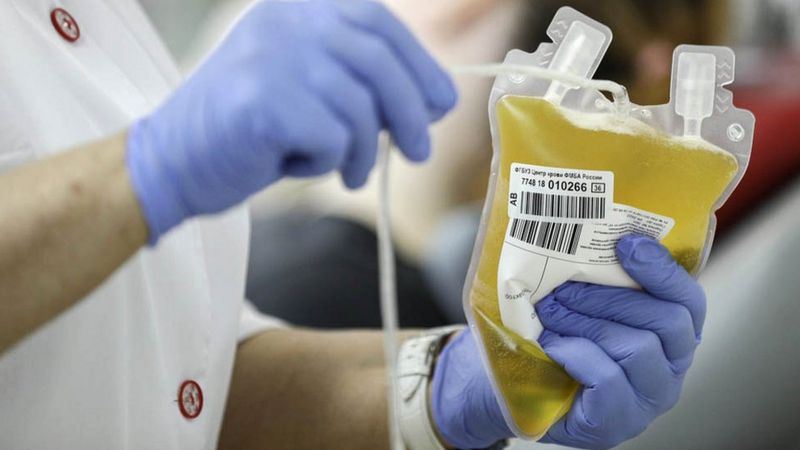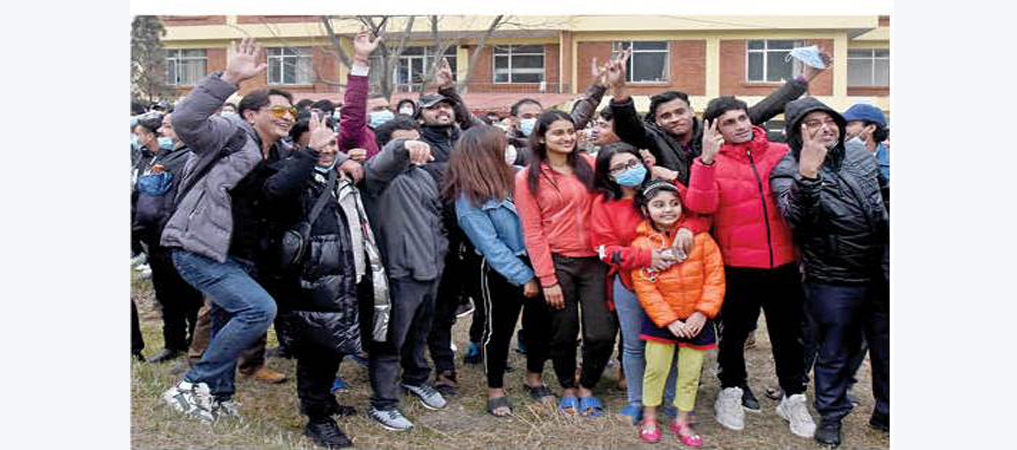Can women with history of pregnancy donate plasma?

By Sampada A. Khatiwada
Kathmandu, Oct. 13: Anisha Shrestha (name changed), 32, was looking forward to donating plasma after she defeated the novel coronavirus infection. But after recovering from the infection, she came to know that she didn’t fall into the priority list of plasma donors as she is a mother to a two-year-old child.
"One of my acquaintances had messaged me stating that plasma of A+ blood group was required for a COVID-19 patient who was in a critical health condition. As the blood group matched, I was willing to donate plasma and I contacted the patient's family," said Shrestha.
"The doctors later told me plasma donation by a woman who has ever been pregnant could be risky and the patient's body could also reject the transfusion," she added.
In recent times, with cases of successful transfusion, Convalescent Plasma Therapy (CPT) has been the 'go-to' alternative method of treatment provided to the COVID-19 patients who are in serious condition.
CPT has become a way for the recovered COVID-19 patients to come forward and help those who are battling the infection. However, not all recovered patients are eligible to donate plasma.
Dr. Pradip Gyawali, executive chief of the Nepal Health Research Council, said, "For a recovered patient to be an eligible plasma donor, s/he must be between 18 to 60 years of age and should not be suffering from any chronic disease. Also, in the case of women, those who have not been pregnant are preferred for plasma donation."
"Research relating to CPT is underway. However, various studies across the world have revealed that the antibodies present in a woman with history of pregnancy may harm the recipients in rare cases," said Dr. Gyawali.
When a woman becomes pregnant, she develops antibodies against the father's genetic material which can result in transfusion-related complications, thereby causing lung injury. "As the receivers of plasma are already in serious health condition, transfusing plasma from a woman who has conceived or delivered a baby could even be fatal. Thus, women donors aren’t the first choice for CPT," Dr. Gyawali added.
Likewise, Dr. Santa Kumar Das, coordinator of the COVID-19 management team at TU Teaching Hospital, said, "During CPT, priority is given to such donors whose plasma will be the safest for the recipient. As plasma extracted from males is comparatively safer, preference is given to male donors."
Dr. Das said that after men, unmarried women with no history of pregnancy are given second priority. "Plasma of women who have conceived or delivered baby is donated only if other preferences aren’t available. But this situation has not occurred to us yet," he added.
Moreover, Prakash Bhujel, a COVID-19 survivor campaigning and facilitating communication between plasma donors and receivers via social media platforms, said that his campaign did not allow female COVID-19 survivors to donate the plasma.
"There have been a few instances where women have donated plasma by voluntarily declaring that they do not have any history of pregnancy. However, via our campaign, we have avoided female donors," said Bhujel.
Bhujel said that inquiring about medical history of a woman would curtail her right to privacy. "Some unmarried women might even hide their pregnancy history due to the fear of social stigma. Thus, we only contact male COVID-19 survivors for plasma donation."
As the cases of novel coronavirus are surging with thousands of infections being reported daily, those eligible to donate plasma must come forward and help the health institutions save lives and those who are not eligible should help in spreading awareness about CPT, said Bhujel.
Recent News

Do not make expressions casting dout on election: EC
14 Apr, 2022
CM Bhatta says may New Year 2079 BS inspire positive thinking
14 Apr, 2022
Three new cases, 44 recoveries in 24 hours
14 Apr, 2022
689 climbers of 84 teams so far acquire permits for climbing various peaks this spring season
14 Apr, 2022
How the rising cost of living crisis is impacting Nepal
14 Apr, 2022
US military confirms an interstellar meteor collided with Earth
14 Apr, 2022
Valneva Covid vaccine approved for use in UK
14 Apr, 2022
Chair Prachanda highlights need of unity among Maoist, Communist forces
14 Apr, 2022
Ranbir Kapoor and Alia Bhatt: Bollywood toasts star couple on wedding
14 Apr, 2022
President Bhandari confers decorations (Photo Feature)
14 Apr, 2022











